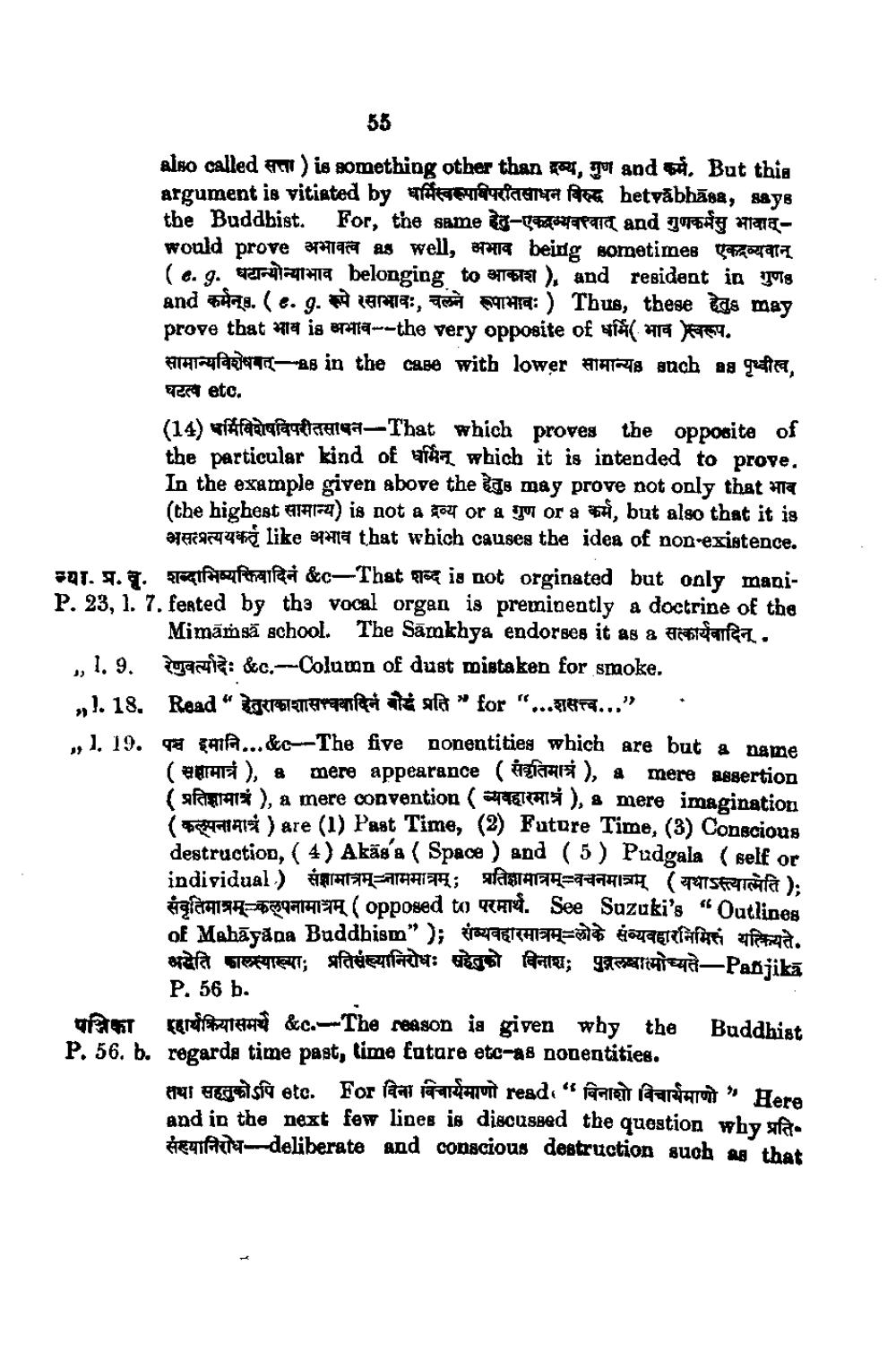________________
,,1.9.
न्या. प्र. वू. शब्दाभिव्यक्तिवादिनं &c — That शब्द is not orginated but only maniP. 23, 1. 7. fented by the vocal organ is preminently a doctrine of the Mimämsä school. The Samkhya endorses it as a data.
yazit: &c.-Column of dust mistaken for smoke. Read " हेतुराकाशासश्ववादिनं बौद्धं प्रति " for "... शसत्त्व..."
1.19....&c--The five nonentities which are but a name ( सहामात्रं ), 8 mere appearance (), a mere assertion ( प्रतिज्ञामात्रं ), a mere convention ( व्यवहारमात्रं ), a mere imagination (*) are (1) Past Time, (2) Future Time, (3) Conscious destruction, (4) Akasa ( Space) and (5) Pudgala (self or individual ) संज्ञामात्रम् - नाममात्रम् प्रतिज्ञामात्रम् = वचनमान्त्रम् ( यथाऽस्त्यात्मेति ); संवृतिमात्रम्-कल्पनामात्रम् (opposed to परमार्थ. See Suzuki's " Outlines of Mahāyāna Buddhism" ); संव्यवहारमात्रम् = लोके संव्यवहारनिमितं यत्क्रियते . अद्धेति कालस्याख्या; प्रतिसंख्यानिरोधः सहेतुको विनाश; पुत्रलब्बात्मोध्यते— Panjika
P. 56 b.
..
18.
55
also called ) is something other than , and . But this argument is vitiated by धर्मिस्वरूपाविपरीतसाधन विरुद्ध hetvābhāsa, says the Buddhist. For, the same हेतु एकदम्यवस्वात् and गुणकर्मसु भावात्would prove अभावत्व as well, अभाव being sometimes एकद्रव्यवान् ( e.g. घटान्योन्याभाव belonging to आकाश ), and resident in गुणs and कर्मन्s. (e. g. रूपे रसाभावः, चलने रूपाभावः ) Thus, these हेतुs may prove that भाव is अभाव - the very opposite of धर्मि ( भाव ) स्वरूप. सामान्यविशेषवत् — as in the case with lower सामान्यs such as पृथ्वीत्व, घटत्व etc.
atest P. 56. b.
(14) धर्मिविशेषविपरीतसाधन — That which proves the opposite of the particular kind of f which it is intended to prove. In the example given above the gs may prove not only that a (the highest सामान्य) is not a द्रव्य or a गुण or a कर्म, but also that it is like that which causes the idea of non-existence.
Keris &c.-The reason is given why the regards time past, time future etc-as nonentities.
Buddhist
तथा सहतुकोऽपि etc. For विना विचार्यमाणो read. " बिनाशो विचार्यमाणो " Here and in the next few lines is discussed the question why fa -deliberate and conscious destruction such as that




